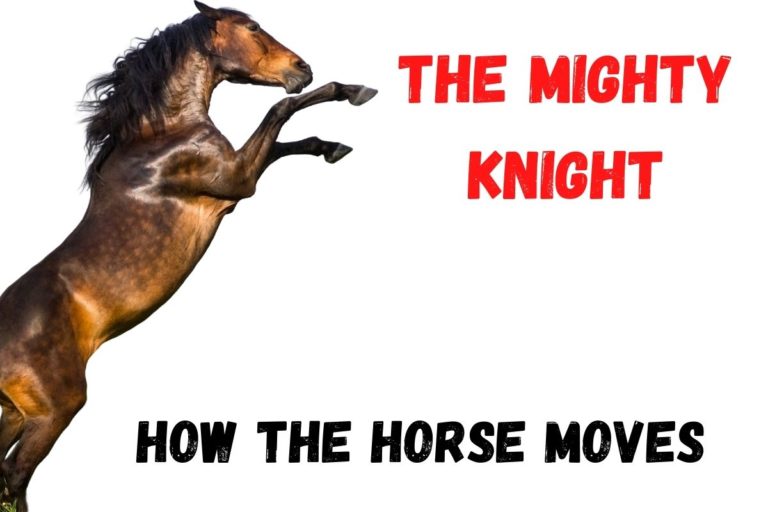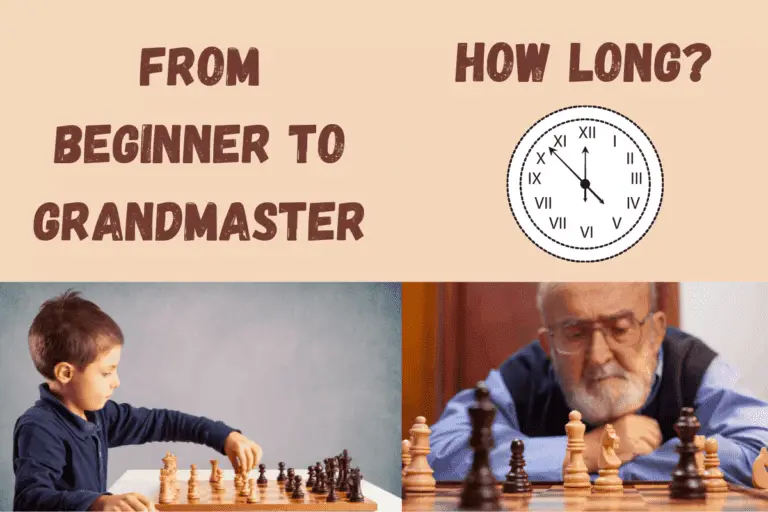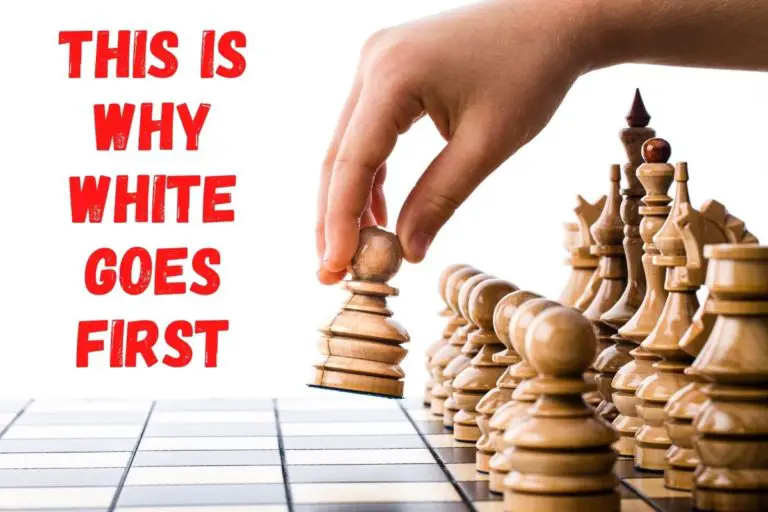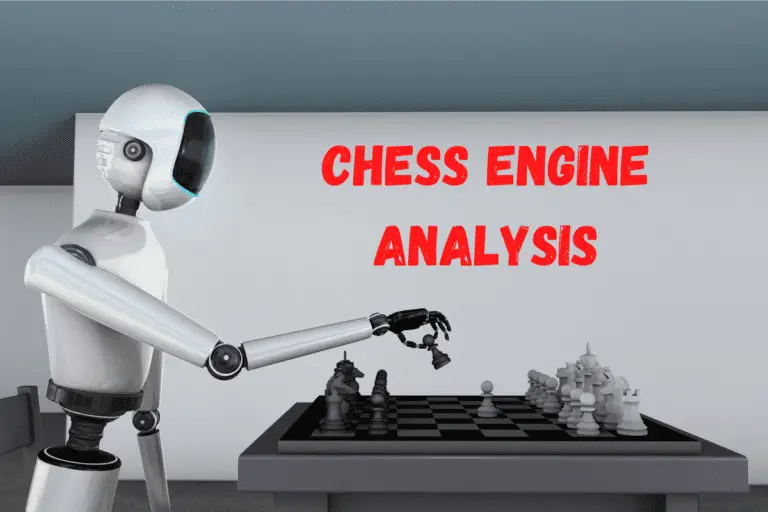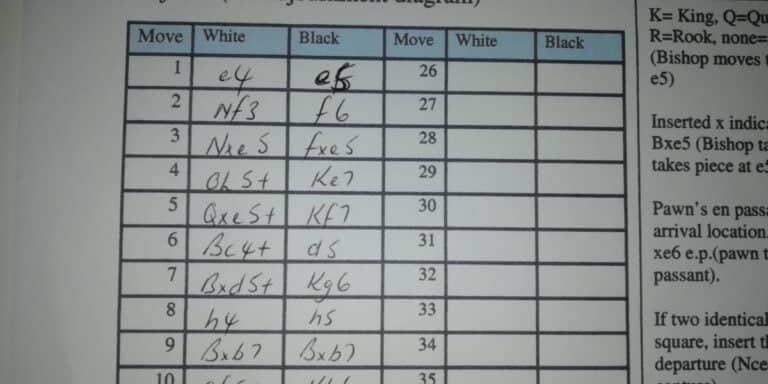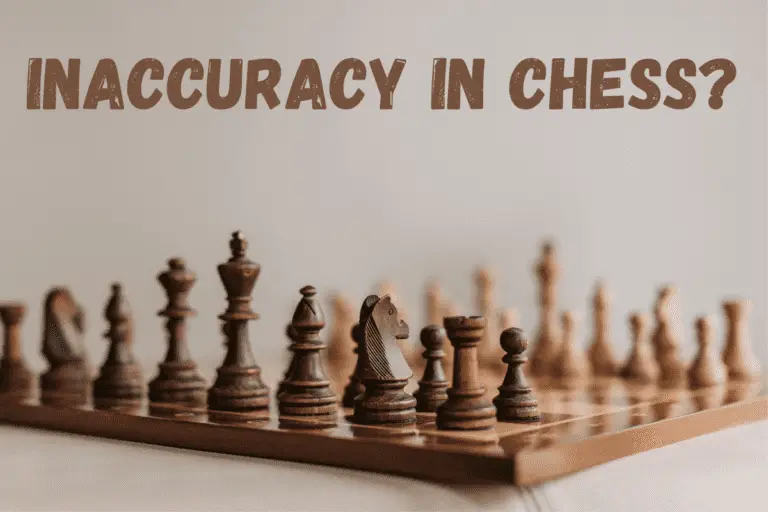Comeback in Chess (7 Strategies to Turn a Game)
⭐⭐⭐ Take 7 minutes to read and improve your chess game ➡️ : This article was first published on, and is Copyright of Chessquestions.com
You are material down. You have lost more higher-value pieces than you had planned, but you are not ready to resign the game, not ready to offer a speculative draw, you want to make a comeback in this game of chess. But what are the steps you need to take?
- Remain positive
- Assess your position objectively
- Remain mentally alert
- Make life difficult for your opponent
- Forget the result, concentrate on accuracy
- Play fast and aggressive
- Bluff
This article will talk about the most common situations where you are behind in a game of chess, and how to use them to your advantage. You will learn what it means when you are behind in a game, as well as some strategies to try if you find yourself in this position. All hope is not lost just because your queen has been taken out; there may be ways for you to make up for that loss and regain an advantageous position on the board
7 strategies for when you are behind in the game
All the elite players in the world are exceptional defenders in professional chess. These players will always find a way to keep playing their best, no matter how difficult the position. It’s a skill you can develop too. Below you will see some important strategies on making a comeback when you are behind.
If you have a strong, centralized king and the opponent’s forces are scattered in many directions it is more likely that your pieces will be able to make a comeback.
Be patient when playing chess; don’t rush into any moves or decisions until you’ve analyzed them carefully. This can help you keep calm under pressure and think.
Let’s take a look
1. Keep your Spirit High
The most important thing to make a comeback is to get the mindset right. If you lose your morale, you will not be in any position to put up a stiff resistance. In such cases, you will begin to believe that your opponent cannot be beaten and their moves are naturally strong. As a result, you subconsciously pay more ‘respect’ to them. This will lead down the path of defeat.
On the other hand, when you have the right mindset and keep the morale high, you will be more resourceful. You will find ways to create problems, ask tough questions to your opponent etc. Also there will be a difference in your body language. You will be more confident.
A lot of times, because of your confidence level, your opponent might start to doubt their own moves and make mistakes.
This might sound really simple on paper, but it’s extremely effective in practice.
A few tips on how you can keep your morale high during a game –
- Take deep breaths to calm yourself down. Often when there is a bad position on the board, people panic. Hence it’s important to become calm first.
- Use positive self-talk. Repeat a mantra that boosts your confidence and gets you into a peak mental state.
- Shift your perspective. Focus on playing the best move in the moment and forget about everything else. We will discuss this topic in detail later.
If at any point you think you will lose the game, the game will be lost. Consider how golfers look and visualize where their ball is going to land, not for a moment do they consider they will not achieve the goal. Keep focus on the goal and you are more likely to avoid defeat.
Try to think like a grandmaster even if you are playing online tournaments. Take the time to identify your opponent’s weaknesses and develop any opportunity you have for an attack, even if it is not obvious at first glance
The ongoing game of quality chess has two players in competition with each other. The player who can see more opportunities will likely win the game or the tournament.
2. Assess the Position Objectively
Before you formulate your strategy for making a comeback and attacking the enemy king, it’s important to look at the ground reality and the risk. How bad is your position? What is the best result you can play for? Can you get your king to safety?
This way you make better practical choices.
Consider this.
You have two variations to calculate. The first one gives you a small chance to play for a win, but if your opponent is precise, you will be in a lost position.
The second one, allows your opponent to keep the advantage, but you have greater chances to make a draw.
Which one will you go for?
If you are thinking from an objective point of view, the second one is the best option. If you are driven by emotions, you will take the riskier first option.
Sure in the second one, you will have to continue fighting but at least the chances of tying the game are higher.
This little choice you will make can mean a half-point or a full point difference in a tournament game. That point’s value is another consideration for the end goal. Is a half-point draw enough, do you need the full point, or are you in a position to gamble the half-point opportunity to gain a full point?
3. Be Mentally Alert
Being mentally alert is not only an essential skill to become a better player, but is tremendously useful when mounting a comeback in chess. This way you begin to look at more possibilities on the chessboard.
The biggest benefit of being mentally alert is tactical awareness. Tactics play a huge role in bad chess. When you are in a tough position, they can be a way out.
Often when your opponent is in an advantageous position, they start to relax and play substandard moves. You need to be aware of the drawbacks of the moves and try to look for ways to exploit them. Sometimes, there will be hidden tactics that you can exploit. But in order to exploit it, you need to stay sharp.
There’s another benefit to this. In chess games, going from a bad position to a totally winning one, in a single move, is difficult (unless your opponent blunders). You’ll go from a bad position to an equal position, before getting a winning one.
In a bad position, you will most likely be thinking about risk aversion and equalizing. But after you equalize, you have to realize that it’s possible to aim higher. This can only happen when you are aware of it.
4. Find ways to make life difficult for your opponent –
You won’t be able to turn things around if you cannot pose tough problems for your opponent. Being resourceful is important.
In a difficult position, a stronger player will create small problems for their opponent on every move. In such cases, the opponent often becomes frustrated with it and the chances to make a mistake increase.
Whilst making a comeback you may be down on material and limited in the sacrifices, or exchange sacrifices you can make.
This even happens in games between the world’s best. In the first game of the 2018 World Championship match between Carlsen – Caruana, the world champion obtained a winning position. However, Caruana kept fighting and surprisingly Carlsen couldn’t convert the advantage.
Then in the sixth game, the reverse happened. This time the challenger, Fabiano Caruana put Magnus under pressure. Carlsen kept finding the best resources to stay afloat in the game. The challenger tried his best, but couldn’t break through the defenses for victory. That game also ended in a draw.
5. Focus on Making the Best Moves & Forget About the Result
When you are in a worse position, you might begin to think about the final result of the game.
This is exactly what you should avoid. Instead, focus on finding the best moves in the position. Forget about everything else. This strategy should also be your general attitude towards the game.
When you focus on the final result in a bad position, you will only create more anxiety and stress for yourself. These emotions will stop you from getting into the right mindset to make a comeback and score a brilliant victory, or even a very good draw.
On the other hand, when you focus on playing the best moves, you are action-oriented and taking decisions from the situation on the board. This way you can dedicate all your mental energy to get out of the bad position.
6. Play Fast
This is an intimidating tactic, that often works wonders in practice. Usually, a chess player plays fast in positions where they feel confident. So if you increase your speed of play in a bad position, your opponent might assume the same. This could start to make them feel nervous.
There’s another benefit too. When you play fast, you consume less time. Now, your opponent has two choices –
- To match your speed and play fast
- To play at their normal pace. (The default)
If they try to play fast, the chances of making mistakes also increases. While if they continue at the normal pace, they will consume more time on their clock. Later, this could lead them into time trouble where your opponent could make a mistake.
However, there’s one thing to remember, when you play fast. Don’t make mindless moves. Instead, you have to keep playing good moves. So start to use your time more productively. There are two simple tips for this –
- Concentrate better.
- Think in your opponent’s time.
7. Bluff
Deceit is a powerful weapon, especially in losing positions. Bluffs don’t work if your opponent remains objective about the position, but the change in your body language could shake their confidence.
You can study more about this topic from poker players, but bluffing is common in the history of chess. It isn’t royal, but in a lot of cases, it’s effective. Use it to make a comeback.
Conclusion
I hope these 7 strategies will help you to make a comeback in chess when you are behind. If the situation looks completely hopeless, then try bluffing as the last resort. Combine it with playing fast. However, the most important one is keeping the right mindset. If you do, you will be in a place to launch a comeback from.

